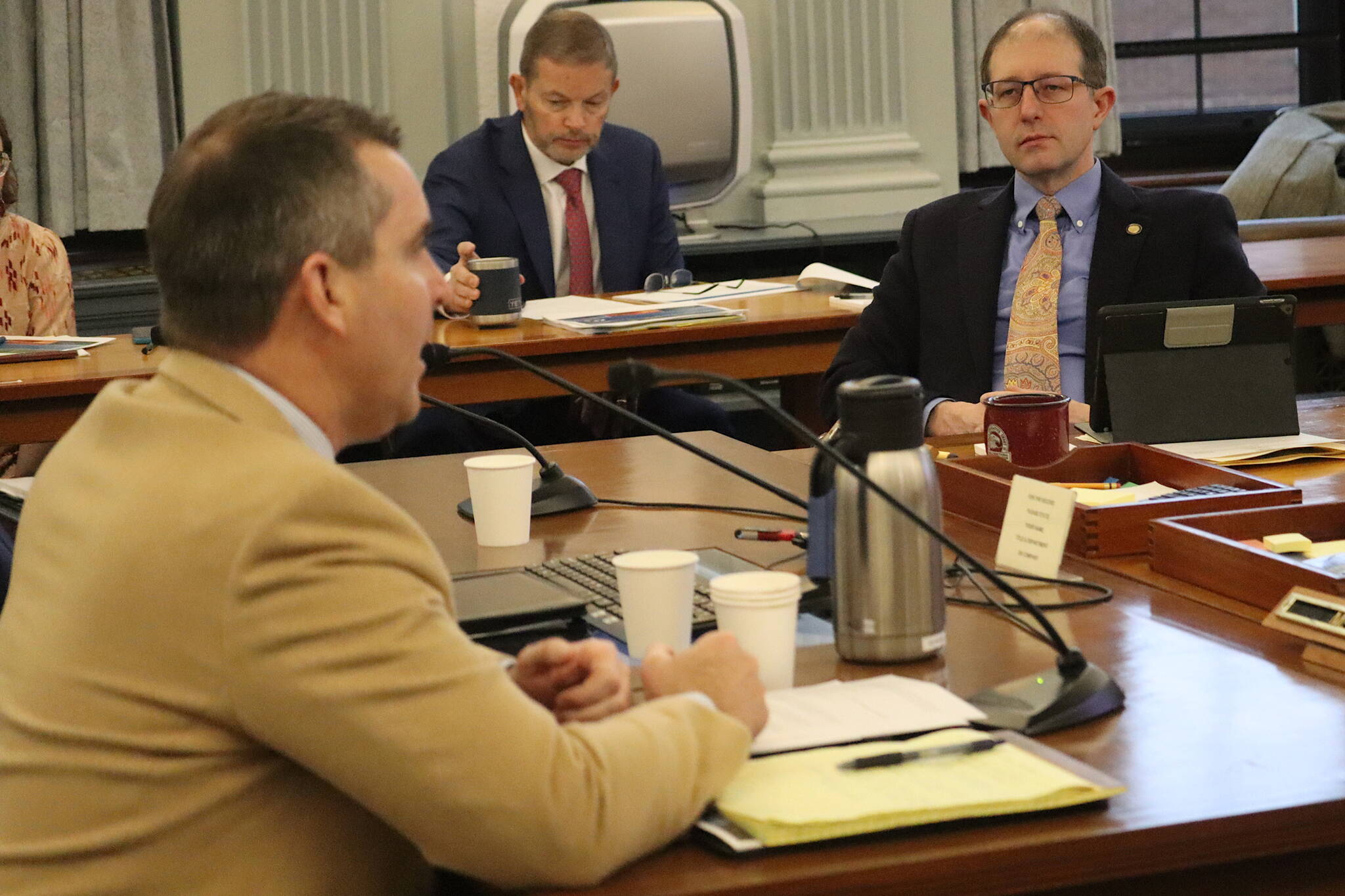While the Alaska State House muddled about in confusion even after electing a speaker, the Senate quickly got off to business as usual during its first two days as leaders discussed specific goals for the months ahead and committees began meeting.
The Senate Finance Committee met Wednesday morning to discuss the state’s oil production, while the resources committee met during the afternoon to consider matters including the potential for carbon credit revenue and potential disputes with federal agencies about environmental resource issues. In between, the upper chamber held its second uneventful floor session in two days, introducing 43 bills that were assigned to committees plus eight resolutions.
A smooth opening for the Senate was possible since a bipartisian majority of nine Democrats and eight Republicans was announced a couple of weeks after November’s election. Senate President Gary Stevens, a Kodiak Republican, emphasized a theme of common purpose after being unanimously elected to the position with no other candidates during Tuesday’s inaugural floor session.
“We may disagree,” he said. “And in fact we will most certainly find areas of difference. But we know that we have to work together to accomplish the enormous tasks and challenges ahead of us.”
The bills and resolutions introduced Wednesday consisted mostly of legislation filed before the session started, along with first drafts of three bills for next year’s budget.
Stevens and other leaders of the majority, during a news conference Tuesday, said they plan to have a detailed list of priority issues by next week, but among the specifics he named immediately are increasing funding for K-12 schools since the allocation for them has been flat for many years and thus fallen behind the inflation rate, as well as a stable statewide fiscal plan.
That means efforts by Republican Gov. Mike Dunleavy and some other lawmakers to maximize the Permanent Fund dividend at the expense of either other programs or spending from reserves isn’t likely to find favor in the senate majority, Stevens said.
“I just don’t think that’s quite possible,” he said.
But Stevens, echoing other legislators in recent weeks, said Dunleavy appears to be making a greater effort to work cooperatively, both by meeting personally with members and in his policy proposals.
“I believe it’s going to be a much easier working relationship,” Stevens said. “The governor has said he’s going to be in Juneau and he’s willing to meet with us when we want to meet with him.”
Stevens said the governor’s first budget four years ago was “devastating,” but the proposed plan submitted last month is a much more reasonable starting point. In addition, the senate president said he is intrigued by the governor’s proposal to earn revenue through carbon credits that largely rely on preserving natural resources or storing emissions by other entities.
“Absolutely it’s a very important issue and I have to applaud the governor for thinking outside the box and moving in a different direction,” Stevens said, adding more information and a cautious approach is needed due to the lack of knowledge about carbon credits by many at the Capitol.

